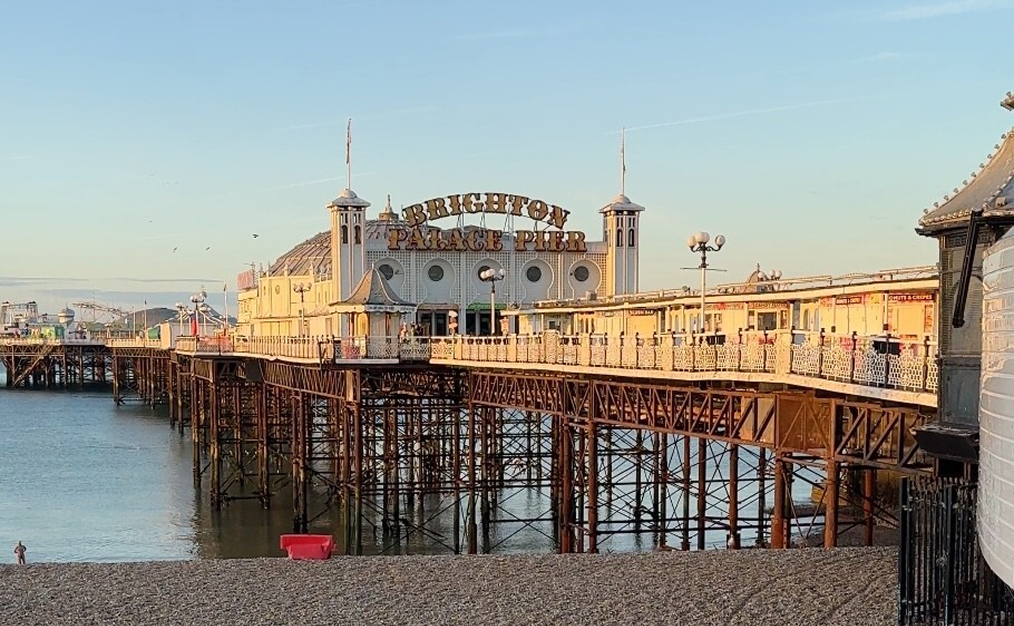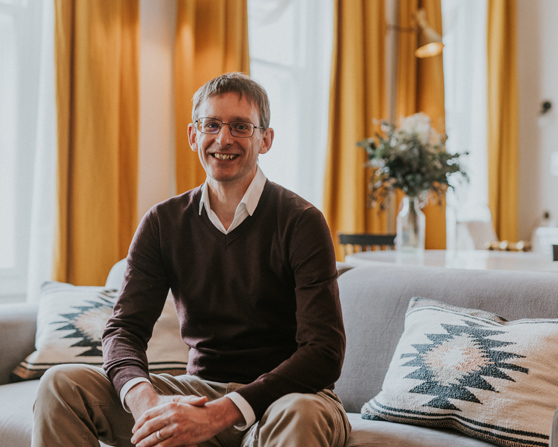Next up in our ‘Women taking the world by Storm mini series’, we hear from Katrina Kelly. Katrina jointly launched Co-forest alongside her role in community engagement at the University of Bath. She runs her own freelance consultancy, studies forestry and she still manages to make family time a priority. Yes, she has the same 24 hours in a day like we all do, but how does she do it?!
Meet Katrina:
Katrina, you’re seemingly an expert at everything you do, but I’d like to focus on your latest venture, Co-forest. Can you briefly talk me through your initial idea of Co-forest and its growth (pun intended).
Thanks! Yes Co-forest is really exciting. David, founder of Storm, is my husband and we were chatting about different ways that Storm could celebrate its tenth anniversary last year. We talked about all sorts of things, but the conversation kept coming back to wanting to do something that would leave a legacy, not just for the next ten years, but for hundreds of years to come. Our daughter is very Greta-inspired, and has a strong affinity for woodlands having grown up going to forest playgroups, and she was asking us at the time about planting trees. From that the seed for Co-forest was planted (sorry!). Initially it was just going to be Storm planting some trees, but as we started to talk to Storm’s clients about the idea many seemed keen to get on board. It occurred to us that we had the skills to make this a really impactful project, so we opened it up and now we have many corporate and individual Co-foresters from all across the region and we’ve just secured our first plot of land!
I hear you’re doing a degree in forestry! What came first, the degree or the concept for Co-forest? And what’s a piece of trivia about forestry you’d like to share?
I’ve always been fascinated by woodlands. My dad was a dendrochronologist for a while (a scientist looking at tree rings) so as a child I went out gathering tree cores with him and learning all about them. I had wanted to do something purely for my own enjoyment outside work after having my children, so an environmental forestry degree fitted the bill perfectly. It just so happens to be the perfect accompaniment to getting Co-forest off the ground, as it means I now know a lot more than I might have otherwise about creating new, biodiverse, healthy woodlands.
A piece of forestry trivia – did you know that spending time in forests can actually improve your immune system? Trees omit phytoncides to protect them from insects, and when we breathe these in our bodies react by increasing the activity of our Natural Killer Cells (great name right?) which help fight tumours or virus-infected cells in our bodies.
I know you are in the early stages of planting your first forest, Acorn. Can you tell me what your aspirations for Co-forest are long term?
Yes we have just acquired our first site and while I can’t say much about it just yet, I can’t wait to shout all about it in a few weeks time! In the long run I would love to develop a roadmap to help others create Co-forests all over the country, and to see Co-forest sites used to connect people with nature. I am personally very interested in the mental and physical health benefits of woodlands, so I’d really love to see our sites feed into research and programmes aimed at supporting people’s wellbeing while also increasing the biodiversity of our country.
Over the last Covid-19 struck year, there have been positive effects showing a slight (and possibly temporary) reverse in climate change. Our air has been cleaner in a lot of cities and the Great Barrier Reef has had some time to breath. With this in mind, do you think more people will be conscious about their carbon footprint when the world returns to normal?
I’m generally a very optimistic person and I feel enthused about some of the really fantastic research currently happening around climate change and also the upswell of grassroots organisations working together to make a big impact. I am equally concerned about the biodiversity crisis as I am about carbon and climate change, and I think that many people will have reassessed their own personal needs from nature following the restrictions of Covid lockdowns. In my opinion, one great outcome would be if people started to make demands of planners to consider green spaces and biodiversity-rich environments in every locality, rural and urban, and demand access to these places for recreation and relaxation.
You have a part time role at the University of Bath, you run your own freelance marketing consultancy, you spend a lot of time with your children and now you’re planting a forest. How do you find enough hours in the day? Is there a secret strategy the rest of us need to know about?
I love my role at the University, I work in community engagement so it overlaps a lot with the other projects I am involved in and the University has so much to offer the local community that it feels really rewarding. I guess I just compartmentalise a lot – I’m lucky that I can switch tracks quickly, but there’s no magic involved and I’ve definitely felt the pressure over the past few months with the addition of homeschooling!
You’ve achieved so much in your career. What would you say the highlight has been and what are you most proud of? Please don’t hold back, we’re here to celebrate you!
Honestly my greatest pride is the influence my career(s) have on my children. Probably helped by lockdown and the fact they have now been exposed to me in a work capacity rather than just as ‘Mum’, but my eldest is fascinated by the different projects I get involved in and has a LOT of questions. She’s really keen to be a forester when she grows up and tells people she wants to go to university to learn about trees. Whatever they go on to do in life, I think it’s really important for children to see that their parents have interests and are passionate about how they spend their career, and I hope that is a message getting across to my two.




